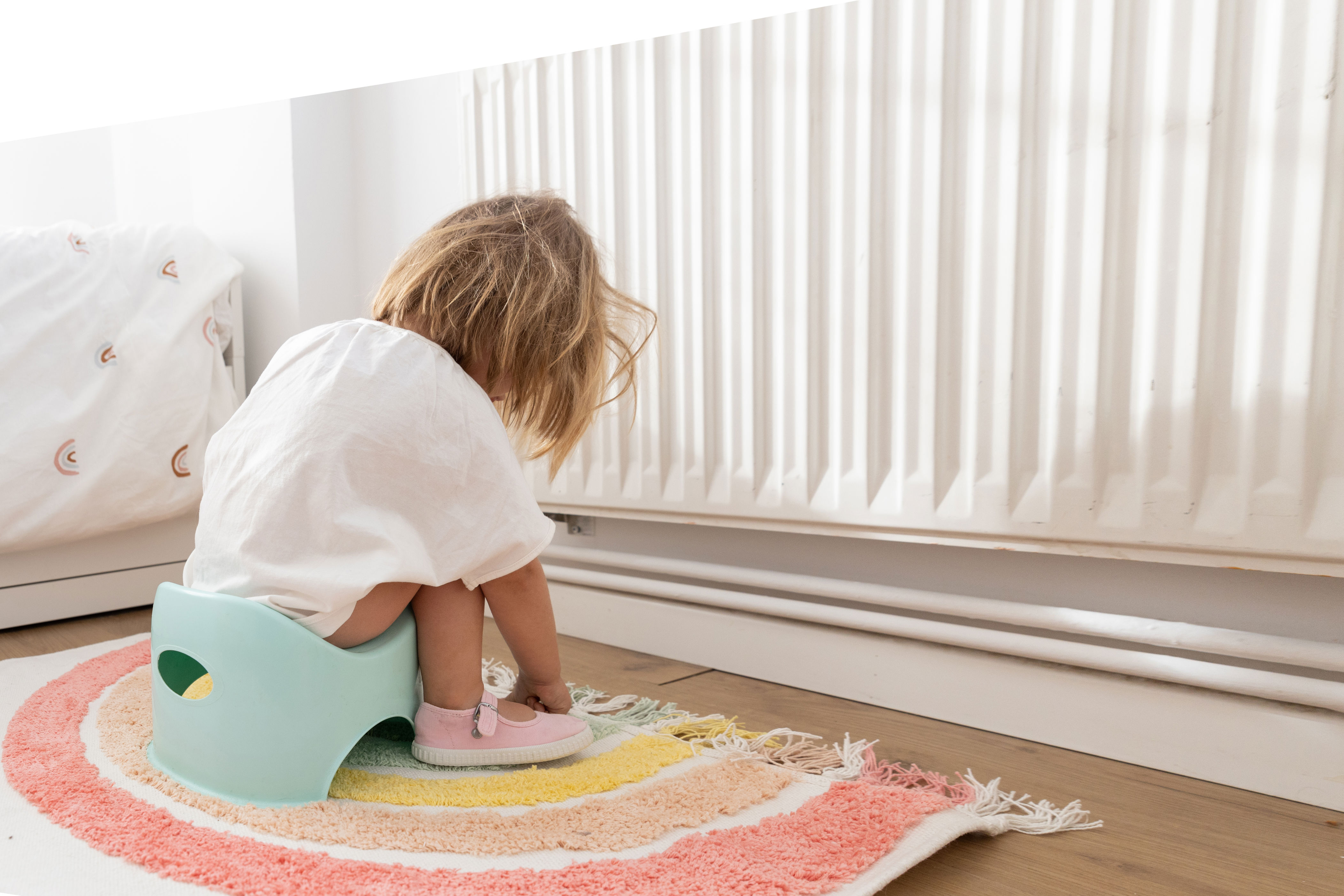How to Help Kids Master Potty Training Before Starting School

Potty training is one of many practical skills children are encouraged to develop before starting school, but many are arriving in the classroom still needing help.
A 2024 survey of 1,000 primary school staff found that one in four children in England and Wales aren’t toilet trained when they start school.
Half of teachers said school-readiness issues have worsened over the past 18 months, with some spending up to a third of their day on basic care tasks like changing clothes or prompting toilet use.
So, what’s holding some children back, and how can parents make potty progress without pressure?
Rethinking 'readiness'
"Some parents delay potty training because their child doesn’t seem 'ready', but starting small and early can make things smoother later on," Dr Patricia Britto, an educational psychologist, tells Yahoo UK.
"I speak to so many parents who say, 'My child’s not ready', and there’s this idea you should wait for a 'big' sign, but often they’re quite subtle."
Signs, according to Dr Britto, include:
-
Hiding out of sight/seeking privacy when doing a poo in their nappy
-
Taking off their nappy
-
Noticing when their nappy's wet or dirty
"But some don’t show any obvious cues at all," she adds. "If you wait too long, it can become a bigger hurdle."
How 'pottyunity' can help
She recommends ‘pottyunity’ – a Montessori-inspired blend of ‘potty’ and ‘opportunity’. This means offering the potty when it may be required, i.e. after meals or before going in the bath, but without pressure to 'go.'
"You can read a book together while they sit, or make it part of playtime; it’s about building routine and comfort," she says, explaining she used this approach with her own daughter from around 12 months.
"She didn’t always use it, but it was part of the rhythm of the day. That helped take away fear when we got serious later on."
The NHS also advises taking small steps to build familiarity such as changing nappies in the bathroom, chatting about wees and poos during changes, or simply leaving a potty where your toddler can see it. Watching siblings or even helping flush the toilet can also make it seem less daunting.
7 simple ways to support potty progress
If you're unsure where to begin, or are trying again after a setback, Dr Britto recommends a calm approach focused on building skills gradually and positively:
-
Spot natural opportunities. Notice when your child tends to wee or poo – often after meals or naps – and offer the potty at those times.
-
Normalise the toilet : Let your child see you use the bathroom and talk about what’s happening. Familiarity helps reduce fear and builds confidence.
-
Make it engaging: Keep a few special books, toys or songs near the potty to encourage relaxed, positive experiences.
-
Celebrate effort : Praise your child for trying, sitting down, or telling you they need to go, not just when they’re successful.
-
Keep things low-pressure: If progress stalls, take a step back without stopping completely. Short, nappy-free periods and regular potty breaks can help things progress gently.
-
Encourage independence: Dress your child in loose, easy-to-remove clothes to help them take the lead and avoid frustration.
-
Don't compare: Focus on whether they are ready as an individual and resist that urge to compare them with other children of a similar age.
If it doesn’t go to plan...
Don’t panic, just reframe it, advises Dr Britto.
"Sometimes kids resist. That’s okay. It just means it wasn’t the right time or method," she says, adding that confidence and routine play a huge role.
"If a child is nervous, it can hold them back, so the main thing is to make it fun and safe. This might mean trying something new, like switching to pull-ups, using a sticker chart, or reading a fun toilet-themed book together."
Most importantly, you can try again. The National Childbirth Trust (NCT)'s guidelines stress parents shouldn't feel they have to continue if their toddler isn't taking to it. They advise stopping and reverting to nappies for a few weeks before giving it another go.
It's also worth remembering many children aren't dry overnight until they’re five . Even after that, accidents are common.
If your child's going to school soon and still in nappies...
Ask for help, says Dr Britto, and keep going. "There’s no shame in asking for support – whether from your health visitor, GP, or a parenting resource. The key is to be consistent, not perfect."
Helpful resources for potty training:
-
No More Nappies: A Potty-Training Book
-
My Carry Potty
-
Peppa Pig Potty and Toilet Training Reward Chart
-
Hey Duggee: A potty training story for toddlers
-
Sesame Street Potty Time with Elmo Toy
Read more:
-
Is it OK for a child to use a potty in public? (Yahoo Life, 3-min read)
-
Half of parents do not think toilet training is solely their job (PA media, 3-min read)
-
Parents must come to school to change nappies, Welsh council says (PA, 4-min read)
Post a Comment